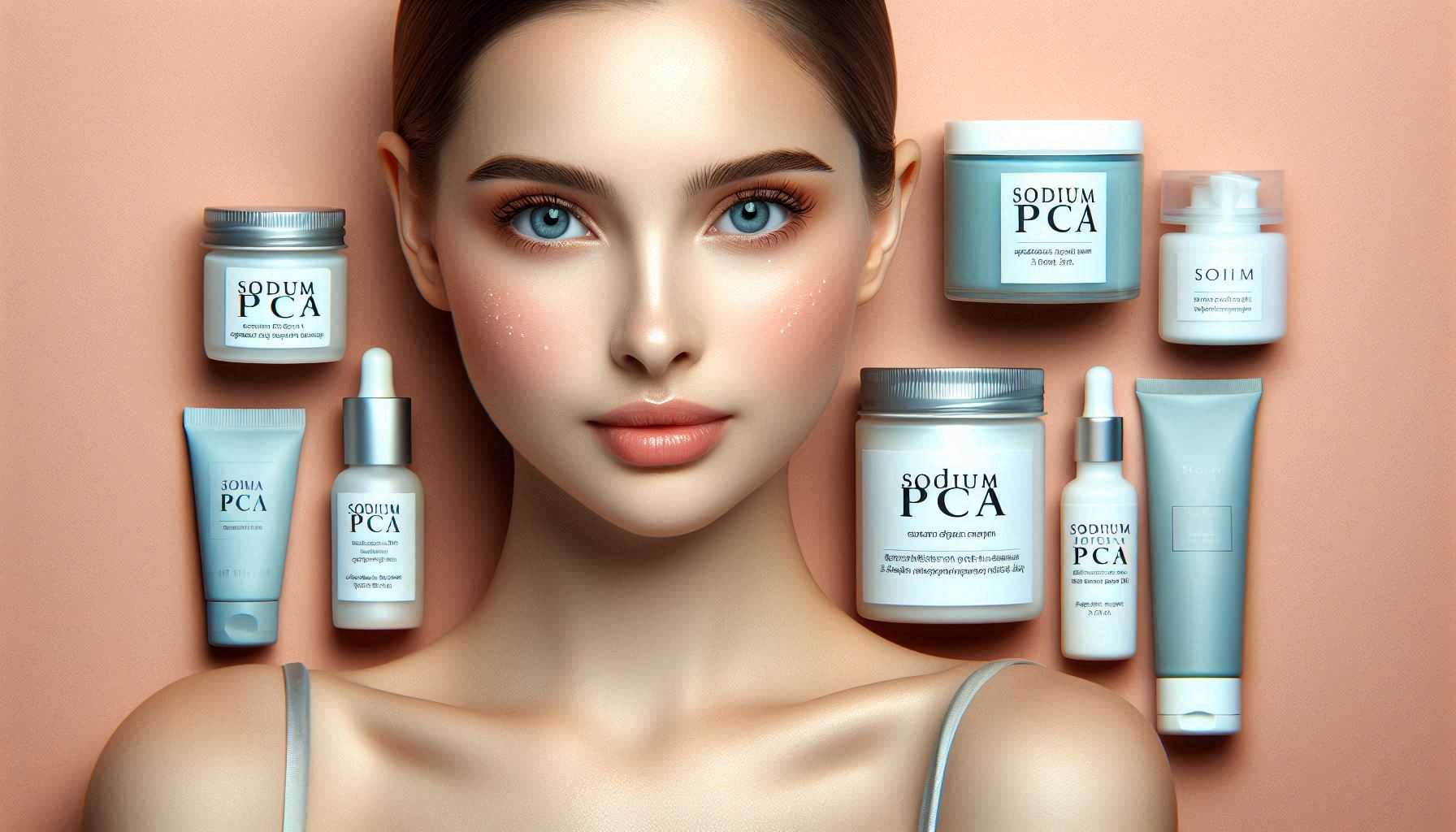
Why do we use Sodium PCA?
Hidden within your skin is a collection of substances that work to keep it naturally hydrated and healthy. This group of compounds is called the Natural Moisturizing Factor (NMF), and one of its most important components is Sodium PCA. It’s an unsung hero in the world of skincare, a powerful humectant that your skin already produces and recognizes.
As a core part of our ingredient philosophy, this powerful humectant is one of the best-kept secrets to healthy, plump skin.
What is Sodium PCA?
Sodium PCA is the sodium salt of Pyrrolidone Carboxylic Acid (PCA). PCA is an amino acid derivative that is a crucial part of your skin’s NMF. In simple terms, Sodium PCA is a natural, high-performance humectant.
A humectant is an ingredient that attracts water and holds onto it. By using an ingredient that is already a key part of our skin’s biology, we can supplement its natural hydration processes in a highly effective and compatible way. The Sodium PCA used in cosmetics is typically derived from plant-based sources like soybeans or coconut oil.
Source:
- National Institutes of Health (PubMed Central): Skin Hydration and the Pleiotropic Effects of Pyrrolidone Carboxylic Acid (PCA) and Its Salts – This comprehensive scientific review in the journal Cosmetics details the vital role of PCA and Sodium PCA in the skin’s Natural Moisturizing Factor and barrier function.
The Good: 3 Key Benefits of Sodium PCA in Creams
Sodium PCA is a foundational hydrator that offers several key benefits.
1. It’s a Natural Component of Your Skin
This is its most important attribute. Because Sodium PCA is a key part of your skin’s NMF, your skin instantly recognizes it. This “skin-identical” nature means it is extremely well-tolerated and highly unlikely to cause irritation, making it suitable for even the most sensitive skin types.
2. It’s a Superior Humectant
Sodium PCA is incredibly effective at attracting and binding water to the skin’s surface layers. It can hold several times its weight in water, helping to:
- Dramatically boost skin hydration.
- Give the skin a plump, supple appearance.
- Reduce the appearance of fine lines caused by dehydration.
Its water-binding ability is even stronger than that of other well-known humectants like glycerin and propylene glycol.
3. It Supports a Healthy Skin Barrier
The skin’s protective barrier, the stratum corneum, needs to be well-hydrated to function properly. By pulling in and holding onto water, Sodium PCA helps ensure the barrier remains healthy and strong. A well-hydrated barrier is better able to defend itself against environmental stressors and prevent moisture loss.
Source:
- CosmeticsInfo.org: Sodium PCA – This ingredient database from the Personal Care Products Council reviews the function and safety of Sodium PCA, noting its role as a skin conditioning agent and its excellent safety profile as determined by the Cosmetic Ingredient Review (CIR) expert panel.
The Bad: Are There Any Considerations?
Sodium PCA is one of the safest, gentlest, and most effective hydrating ingredients available. It has virtually no “bad” side effects for the skin. The considerations are less about the ingredient itself and more about how it fits into a complete formula.
- It’s a Team Player, Not a Solo Act: As a humectant, Sodium PCA’s job is to draw in moisture. For it to be most effective, especially in dry climates, it should be paired with emollient (like Shea Butter or Jojoba Oil) and occlusive ingredients. The emollients soften the skin while the occlusives form a seal to lock in the hydration that Sodium PCA has attracted. This isn’t a flaw, but a key principle of good formulation.
- Sourcing of Raw Material: While the overwhelming majority of Sodium PCA used in modern cosmetics is created from plant sources or biotechnology, it can technically be derived from animal sources. Brands that are committed to vegan formulas will ensure their Sodium PCA is plant-derived. Note: any Sodium PCA used in our products are 100% plant based.
The Verdict
Sodium PCA is an A-list hydrator and a foundational component of healthy skin. Its ability to bind moisture, coupled with its natural presence in our own skin, makes it a superior choice for providing gentle, effective hydration for all skin types. When you see it in our products, you can be confident it’s there to replenish your skin’s natural moisture reserves, leaving it plump, healthy, and perfectly balanced.
Frequently Asked Questions about Sodium PCA
Yes, it is excellent for oily and acne-prone skin. As a powerful humectant, it provides intense water-based hydration without adding any oil or clogging pores. This helps keep oily skin balanced and can prevent it from over-producing oil due to dehydration.
Both are excellent humectants, but they work slightly differently. Hyaluronic Acid is a large molecule famous for holding up to 1000 times its weight in water, forming a moisture-binding gel on the surface. Sodium PCA is a smaller molecule that is part of the skin’s own NMF, helping to bind water within the cells of the stratum corneum. They work beautifully together.
Yes, Sodium PCA is considered a natural ingredient. It is a component of our skin, and the kind used in cosmetics is typically derived from the fermentation of plant sources like soybeans or coconut oil.
Find Sodium PCA in Our Products
(will be updated shortly)
